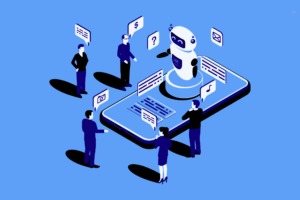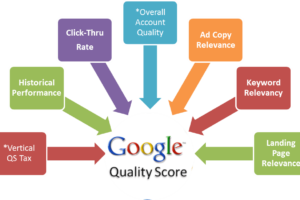In today’s fast-paced business environment, leveraging technology to streamline operations and improve customer relationships is crucial. Businesses often consider two popular systems: Customer Relationship Management (CRM) and Enterprise Resource Planning (ERP) software.
While both systems are designed to optimize business processes, they serve different purposes. This blog will explore CRM Vs ERP, their benefits, key differences, integration processes, and how to decide which one is the best fit for your organization.
What is CRM & Its Benefits?
Customer Relationship Management (CRM) software focuses on managing a company’s interactions with current and potential customers. It is designed to help businesses improve customer retention, enhance sales, and provide a personalized customer experience.
Benefits of CRM:
- Improved Customer Relationships: CRM enables businesses to track and manage customer interactions, ensuring timely and effective communication.
- Enhanced Sales Performance: By providing insights into customer behavior and preferences, CRM helps sales teams close deals more efficiently.
- Data Centralization: All customer information is stored in one place, making it easier to access and analyze.
- Marketing Automation: CRM software often includes tools for automating marketing campaigns and tracking their performance.
- Better Customer Retention: With tools to address customer concerns promptly, businesses can improve satisfaction and loyalty.
Popular CRM tools include Salesforce, HubSpot, and Zoho CRM, which cater to businesses of all sizes and industries.
What is ERP & Its Benefits?
Enterprise Resource Planning (ERP) software focuses on integrating and managing core business processes such as finance, supply chain, human resources, and manufacturing. It provides a unified system to streamline operations and improve efficiency.
Benefits of ERP:
- Process Integration: ERP systems unify disparate processes, improving collaboration across departments.
- Improved Efficiency: Automation of routine tasks reduces manual errors and increases productivity.
- Comprehensive Reporting: Real-time analytics and reporting provide actionable insights into business performance.
- Cost Reduction: By optimizing resources and processes, ERP helps reduce operational costs.
- Scalability: ERP systems are designed to grow with your business, accommodating increased data and user demands.
Leading ERP platforms include SAP, Oracle NetSuite, and Microsoft Dynamics 365.
Key Differences – CRM Vs ERP
While CRM and ERP systems share some overlapping features, their primary purposes and functionalities differ.
| Feature | CRM | ERP |
| Focus Area | Customer relationships and sales | Internal business processes |
| Primary Users | Sales, marketing, and customer service teams | Finance, HR, supply chain, and operations teams |
| Core Purpose | Boosting customer satisfaction and sales | Streamlining operations and reducing costs |
| Data Management | Manages customer-related data | Manages organizational data |
| Timeframe Focus | Future-oriented (predicting customer behavior) | Present and past-oriented (analyzing current processes) |
CRM & ERP Integration Process
Combining CRM Vs ERP systems can offer businesses a holistic view of operations and customer interactions. Here is how the integration process typically works:
- Identify Business Needs: Determine the specific goals and pain points that integration will address.
- Choose Compatible Systems: Ensure that your CRM and ERP software are compatible and support seamless integration.
- Develop an Integration Plan: Outline the integration strategy, including data migration, synchronization, and system updates.
- Implement Middleware: Use integration tools or middleware to connect the systems.
- Test and Optimize: Conduct thorough testing to ensure data flows smoothly between the systems and make necessary adjustments.
- Train Employees: Provide training to employees on how to use the integrated system effectively.
Must Read: Why Choose Odoo Consulting Services?
Which One is Best – CRM Vs ERP: How to Select?
Choosing between CRM and ERP depends on your organization’s priorities and growth stage. Here are some considerations:
- Focus on Your Goals: If customer acquisition and retention are top priorities, CRM is the better choice. If streamlining internal operations is more critical, ERP might be the way to go.
- Evaluate Your Budget: CRM systems are generally more affordable than ERP systems, making them suitable for smaller businesses.
- Business Size: Large organizations often benefit from ERP’s comprehensive capabilities, while small to medium-sized businesses may start with a CRM system.
- Integration Potential: Assess whether integrating both systems aligns with your long-term business strategy.
Ultimately, the decision should be guided by your specific business needs and objectives.
Conclusion
CRM and ERP systems are powerful tools that can significantly impact a business’s success. CRM focuses on improving customer relationships and driving sales, while ERP streamlines internal processes and reduces operational costs. Understanding their differences and benefits can help you make an informed decision or even integrate both systems for maximum efficiency. Choose wisely based on your business’s unique requirements and goals.
FAQs on ERP Vs CRM
- Can CRM and ERP work together?
Yes, integrating CRM and ERP systems provides a unified view of customer and operational data, enhancing efficiency and decision-making.
- Which is more cost-effective: CRM vs ERP?
CRM systems are generally more affordable than ERP systems, making them suitable for smaller businesses.
- Do small businesses need ERP?
Not always. Small businesses often prioritize CRM for customer management, but as they scale, ERP may become necessary.
- How long does it take to implement CRM or ERP?
Implementation timelines vary based on the complexity of the system and organizational needs, ranging from a few weeks to several months.
- Can one system replace the other?
No, CRM and ERP serve different purposes and are most effective when used together.











